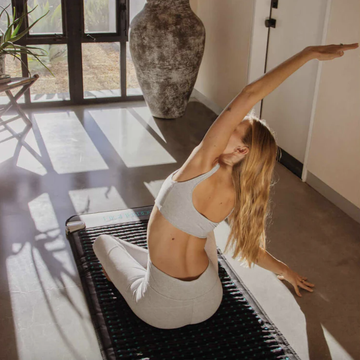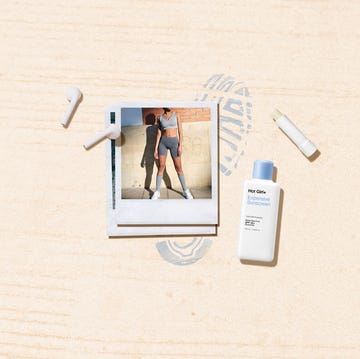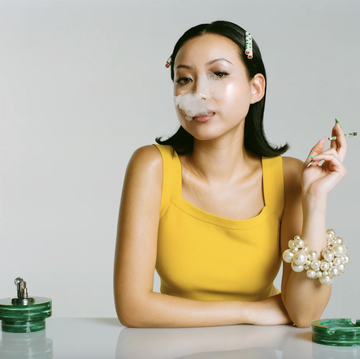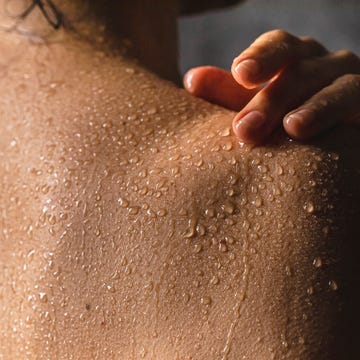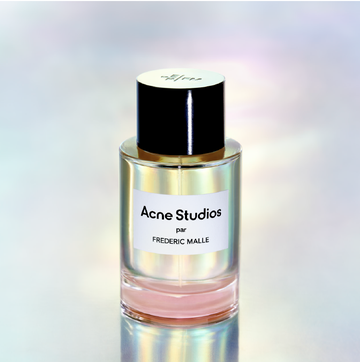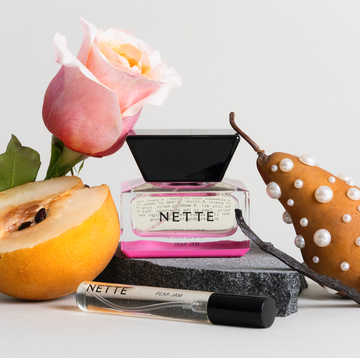As the clinical director of New York's buzzed-about YinOva Center, a holistic-based medical practice, Jill Blakeway has seen her share of strung out women. "One patient, a lawyer in her '30s, used to listen to cases on her headphones during acupuncture treatments and even brought her teeth whitening trays so she could do three things at once," says Blakeway. "You've got to admire someone that organized but all of her symptoms—the fatigue, insomnia, headaches—were related to the way stress was affecting her body." Call it multi-tasking to the max but the latest report from the American Psychological Association finds that 82 percent of women say stress impacts their health while 23 percent say it's reaching critical levels (yikes). Tackle stress before it sends you over the edge with these proven techniques.
FIRST, SLOW DOWN YOUR BREATHING The rapid shallow breathing that sets in when you're anxious creates an imbalance in the autonomic nervous system, which produces an "incoherent" heart rate, says New York psychologist Leah Lagos of the Office of Integrative Medicine. To help patients achieve "calm, ocean-like waves" of breathing, Lagos relies on goof-proof handheld biofeedback devices with lights and signals to help one control their heart rate, such as the emWave 2 ($229), or breathing apps, like BreathPacer (.99 cents). "The optimal rate is to breathe in for four seconds, out for six seconds. Try it for 20 minutes twice a day," says Lagos. Doing so will increase your body's ability to regulate stress and have a "profound effect on mood," she notes.
TAP (YES, TAP) FOR 15 MINUTES Acupuncture has been proven to lower stress but what if you're not into needles? Try "tapping," a healing method based on Emotional Freedom Techniques (EFT) and Chinese medicine. It involves tapping your fingers five to seven times on the body's meridian points (such as under your nose, below the collarbone) while repeating an affirmation related to your stress ("Even though my head is pounding, I choose to relax and let it go"). "The latest research shows that when we tap in this way, it sends a calming signal to our brain and deactivates the body's response to stress," explains Nick Ortner, author of The Tapping Solution. Sounds ridiculously touch-y feel-y, right? It actually works, says to Dr. Susan Blum, assistant clinical professor at the Mount Sinai School of Medicine. Find a tutorial at thetappingsolution.com.
START THE DAY WITH MACA Nutritionist Oz Garcia swears by maca powder, an adaptogen herb that helps the body cope better with stress. Adding a tablespoon to yogurt or protein shakes has a "remarkable" zen-effect, he says (bonus: it has a subtle chocolate-y taste). As for what to avoid, Lagos says that "caffeine-rich coffee can reduce the time intervals between heartbeats, which is crucial for controlling stress." Try green tea instead—it has less caffeine and is packed with L-theanine, an amino acid that can boost mental performance and quell anxiety.
CONSIDER CUPPING Celebrities have made it trendy but cupping is truly useful for battling stress, says Blakeway, who recommends it to many of her patients. Fire is used to suck air out of a glass cup, which is then glided over your back with a massage oil to provide slip. "It's like doing a massage in reverse, pulling up on the muscles rather than down, which is more effective at releasing tension than a regular massage," she says.
SUPPLEMENTS THAT WORK Rather than pop a prescription pill—most anti-anxiety meds are extremely habit forming—consider natural supplements targeted to your symptoms, suggests Dr. Blum. For a racing mind, she recommends one to three milligrams of melatonin or one tablet of Cortisol Blocker by Integrative Medicine. "It has magnolia to help quiet the adrenal system and regulate the stress hormone cortisol so you can sleep better." For tense body aches, she prefers one tablet of Metogenic's MyoCalm PM with calcium, magnesium and valerian to ease muscles. A saliva test can also be done with an integrative specialist to tailor a supplement program to your cortisol levels. The cost: about $350 to $750. Which just might make you happier than Manolos.



